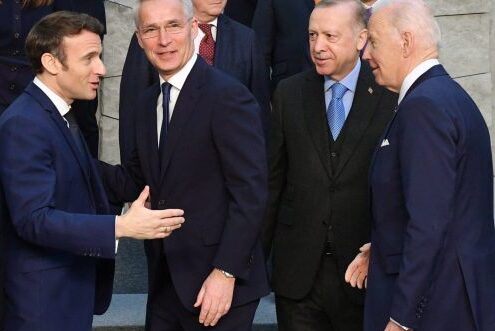By Massimiliano D'Elia
The decision to join NATO was probably the best choice made by Turkey in foreign policy, considering its rich historical legacy, characterized by cultural, social and religious contradictions between the West and the East. Turkey was accepted into the Alliance in 1952 along with Greece, as the Truman administration believed that containing communism in Europe was not possible without their participation.
During the Cold War, NATO membership protected Turkey from invasion by the former Soviet Union and contributed to its economic development, in line with Western countries.
Today, during the Erdogan era, relations with NATO have often tilted, reaching incomprehensible peaks of tension. Many members of the Alliance wonder whether it is still appropriate to have such a controversial country among its ranks. Turkish diplomats, in various ways think tanks they highlight the skill of generations of Turkish statesmen who have worked tirelessly to keep Ankara safe. For example, the leadership of Ismet Inon it was crucial in preventing Turkey from being involved in World War II and invaded by Nazi Germany, while remaining an ally of the West.
Il Kemalist regime it was far-sighted enough to avoid involvement in international conflicts, especially to preserve economic development. In addition to diplomatic dexterity, NATO membership has allowed Turkey to pursue its development goals while ensuring security and resilience.
Turkey's proactive attitude towards crucial NATO missions, such as Kosovo and Afghanistan, has given it an authoritative voice in the Alliance. As a result, various US administrations have paid attention to Ankara's security concerns, including Kurdish separatism and threats from Vladimir Putin's Russia. In November 2015, after Turkey shot down a Russian fighter jet in Turkish airspace (the first such incident by a NATO country since 1952), Putin had to think carefully about how to respond militarily to a NATO member country.
Without NATO membership, it is plausible that Turkey could have suffered a fate similar to that of Ukraine since 2014. According to some 2022 polls, the majority of the Turkish population perceives the United States as the main threat, while only 19 % see Russia the same way. Under Erdogan's leadership, Turkey has consistently sought to compromise NATO security through a series of reckless initiatives. These actions appear to be aimed solely at attracting more attention, with the aim of preserving an international relevance considered essential to make ongoing demands. Turkey has adopted an ambiguous approach as its international benchmark, arousing suspicion and distrust from the Western community.
On the issue of Scandinavian membership in NATO, Erdogan opposed the ratification, as well as the purchase of the Russian S400 missile defense system, which temporarily excluded Turkey from the multinational F-35 program. Last August the first F-35 was delivered to the Turkish Air Force, as part of an order that includes 100 fighters in the next few years, of which 30 have already been approved. Turkey has been part of the F-35 program since 1999, and the Turkish defense industry has taken an active role in aircraft production, investing $1,25 billion in the aircraft's development.
In conclusion, Turkey not only should not, but cannot abandon NATO. Her sometimes ambiguous policy can represent an element of strength for the Alliance, especially in an international crossroads that has become crucial for regional balances in the Wider Mediterranean.
Subscribe to our newsletter!
